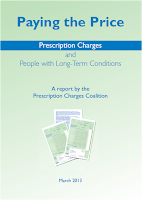I was sad to hear of Margaret
Thatcher’s death last week. And sadder still to witness the hugely divisive
response her death evoked. I only met her once and that was in a large group,
but like Tony Blair, who I also met once, she had a hugely powerful presence in
the room and drew you in whatever once political beliefs. She endured much ill
health in her later years, and in 2005 her daughter revealed that her mother
was living with dementia.
Thatcher’s husband Denis, had
died in 2003 and she was said to have missed him dreadfully. However, unlike
the 62% (over 250,000) of people with dementia who live on their own, she
was unlikely to have been lonely. Last week the Alzheimer’s Society published their report
Dementia 2013: the hidden voice of loneliness – and it’s a compelling read. This
report looks at how well people with dementia are living. 70% of those living with
dementia said they had stopped doing things they once did due to lack of
confidence, not ability or opportunity. Most felt anxious or depressed and 35%
said they had lost friends since being given a diagnosis.
Despite the current Prime
Minsters Challenge – to fund more research into dementia; to address the
quality of dementia care; to increase the public’s understanding of dementia;
and to create more dementia friendly communities – this report shows that many
people with dementia feel disconnected from society and that for many of those who
live alone, they are truly isolated.
In a related story this week, I
got to read the Prescriptions Charges Coalition report: Paying the Price. More
of which in a moment, drug treatments for some kinds of dementia (Alzheimer’s)
have made a significant difference to the quality of life for many people in
the early stages of living with dementia. However, up until 2011, people were denied
access to these drugs on the basis that National Institute for Health and
Clinical Excellence (NICE) declared the drug clinically effective but not cost
effective. The NHS spends £8.8b a year of drugs although £500m is thought to be
wasted due to ineffective use of medicines.
What the Paying the Price report
showed however was that many people today cannot afford to get their prescriptions
filled. On the 1st April 2013, prescription charges in England rose
again to £7.85 per item (prescriptions are free in Wales and Scotland). The
report showed that 35% of those participating in the survey (4000 people with
long term conditions) had not collected at least 1 item due to the cost. It’s
got to be wrong in this day and age, particularly where in other parts of the
UK there is no charge, that people in England have to stop or ration their medication
because of cost. In health economic terms it also doesn’t make sense. The more difficulties individuals experience in managing their own care the more likely it is
that their health care needs will require further intervention and increasing the
cost to the NHS and society as a whole.
Yesterday was a gardening day. I
planted last year’s Christmas tree, trimmed back the ivy, swept the drive, and
made a start on clearing the beds of dead leaves and the general debris left
over from the winter. The whole garden has burst into bud. Standing there for a
pause, I thought the daffodils this year have been magnificent. Each seems to
me to be like a drop of sunshine.




No comments:
Post a Comment